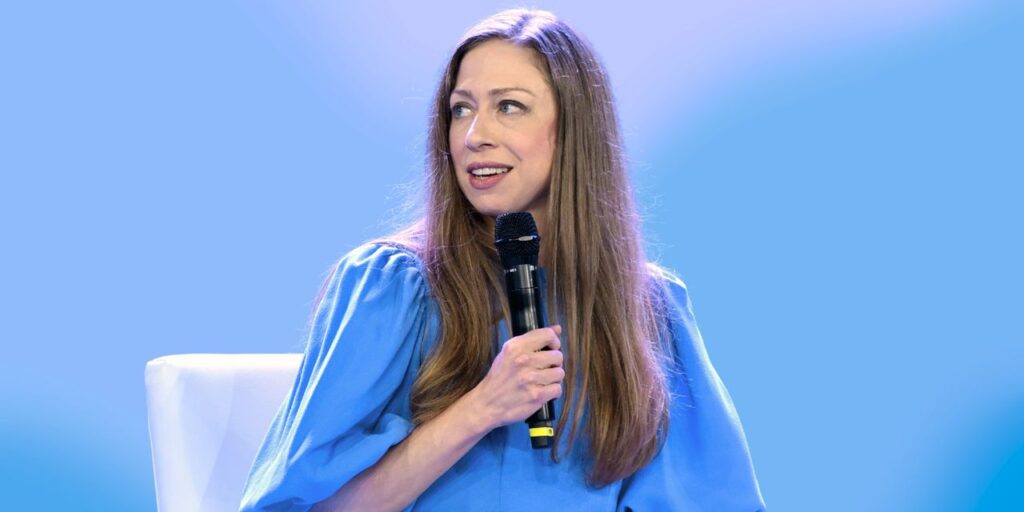Chelsea Clinton, DPhil, MPH, has a vivid memory of her grandmother telling her about the release of the polio vaccine: “It was one of the greatest moments of her life. She stood in line with her kids for six hours so they could all get it,” she tells SELF. So you can imagine the recent discourse questioning if polio was really that bad has been particularly unsettling for Dr. Clinton, who’s studied, written about, taught classes on, and advocated and raised money for public health for decades. It’s among the many pieces of health misinformation in the zeitgeist lately that motivated her to create the podcast That Can’t Be True, out October 2. In each episode, she chats with different highly credentialed experts to distinguish a flurry of misguided wellness trends from real science on how to live well.
The time is ripe for the podcast, Dr. Clinton says, “as the volume of mis- and disinformation percolating around public health feels as if it’s growing instead of shrinking.” It’s not all of the same ilk, either. Some of it springs from “people who are trying to sell you the antidote to whatever harm they’ve declared,” Dr. Clinton notes. That’s the old-fashioned snake-oil salesperson, who, in a modern context, might claim that seed oils are bad for you (it’s been widely debunked) just to sell you, say, olive oil.
But there’s also a portion of misinfo that comes from “longstanding beliefs that may seem like they make sense” and have a layer of “drama and bombast” to them that lets them spread on social media, Dr. Clinton points out. Take, for example, the idea that evidence-based sex education (including information on contraception) causes teens to have more sex. This has never been proven true, but it’s easy to see how some folks might believe this—and how it could pick up steam online. Dr. Clinton also cites a 2021 review of studies on COVID-related social media posts finding that, in some cases, as many as 30% included misinformation. Sure, that means at least 70% consisted of high-quality information, she concedes, but more than a quarter of the content being at least partly false is still “quite a lot.”
Helping debunk today’s most prevalent wellness myths feels like a natural role for Dr. Clinton, who previously hosted a pandemic-era podcast with a similar bent, In Fact With Chelsea Clinton. She’s been passionate about public health since well before her multiple degrees and advocacy work, tracing her first interest to a night at her father’s presidential campaign headquarters at the age of 11. A clip about Magic Johnson revealing that he had HIV popped up on the local news, and a broadcaster commented on how much bravery that took. “I remember thinking, bravery is standing up to bullies. Why would something about your health require bravery?’” Dr. Clinton says. She would go on to dedicate years of her life to studying the AIDS epidemic, in part because of the instinct that someone shouldn’t need courage to discuss health—that contracting a condition is often a public, rather than personal, fault.


